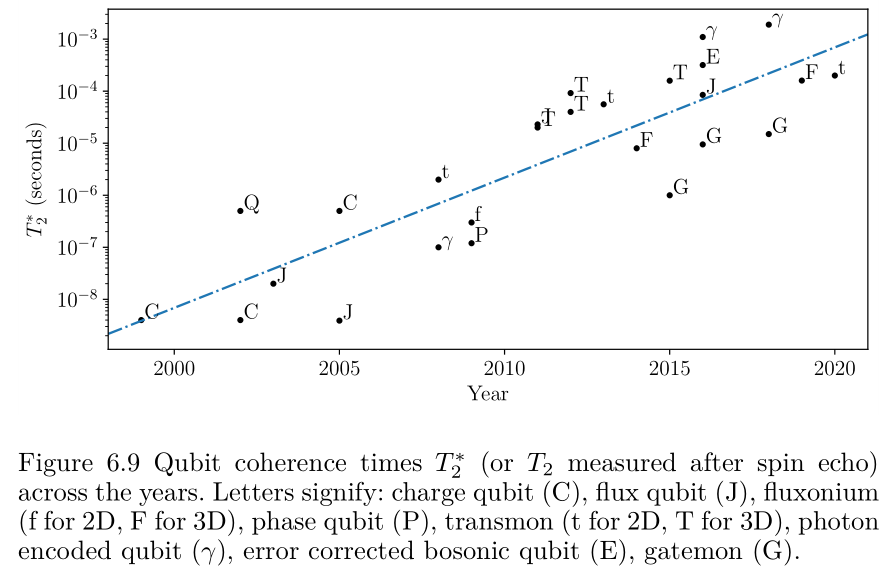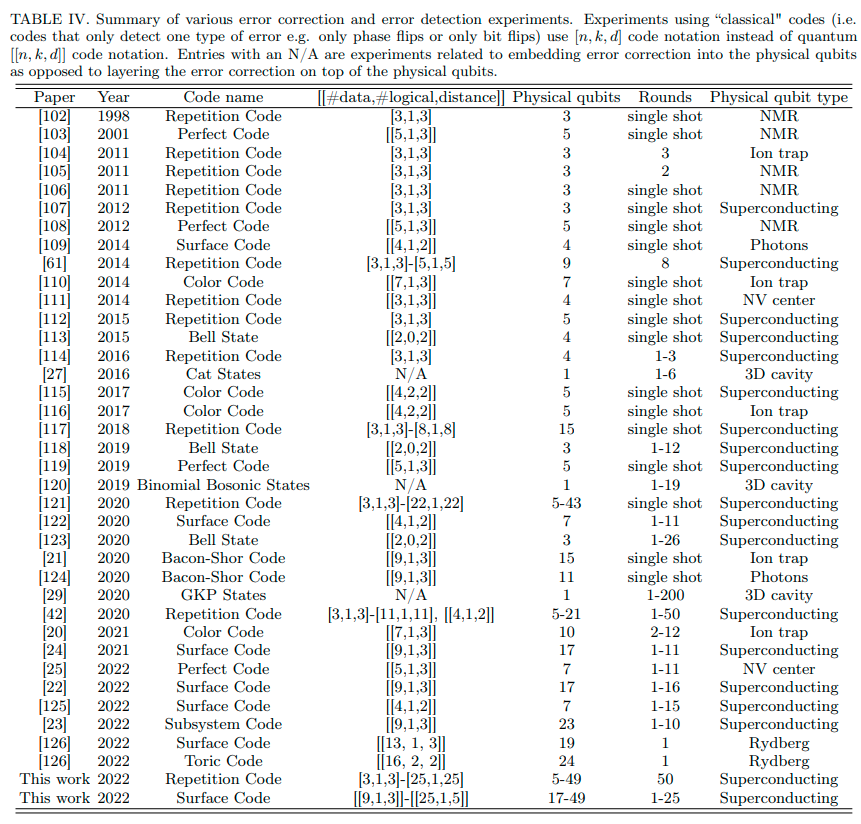This kind of thing is why:
(That's just the easiest image I could find with a google search. It's from https://twitter.com/jjgarciaripoll/status/1295752348124553217 . Don't know what paper, but coherence times have definitely increased by orders of magnitude over the years.)
Everything has been getting gradually better. Things have become good enough that error correction is essentially starting to work. Five years ago physical qubits were obviously better. Now it's kind of even. Probably in five years the logical qubits will be obviously better.
Technically there's error correction papers going back 25 years showing it "working", but the number of caveats on what "working" means has been going down. For example, a major difference between recent QEC experiments and early QEC experiments is now we do multi-round experiments. Computations span many rounds, so single-round experiments were always unrealistic. But multi-round experiments are much more demanding, requiring mid-cycle measurements and higher fidelities across the board.
Examples of important caveats are:
- Single round instead of multiple rounds
- Repetition code instead of quantum code
- Error detection instead of error correction
- Postselection of correlated error mechanisms like leakage or cosmic rays
From https://arxiv.org/abs/2207.06431 :


